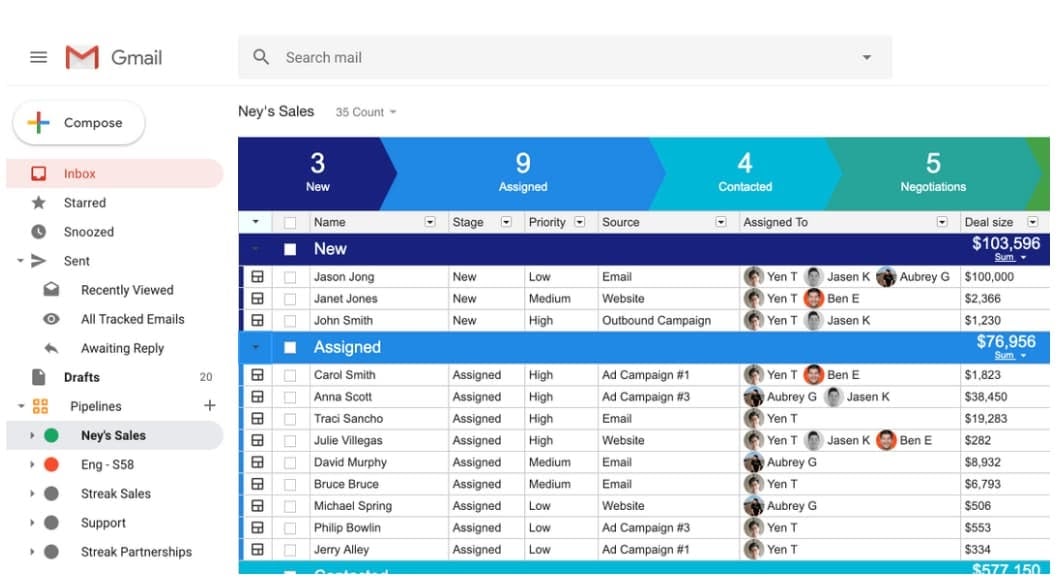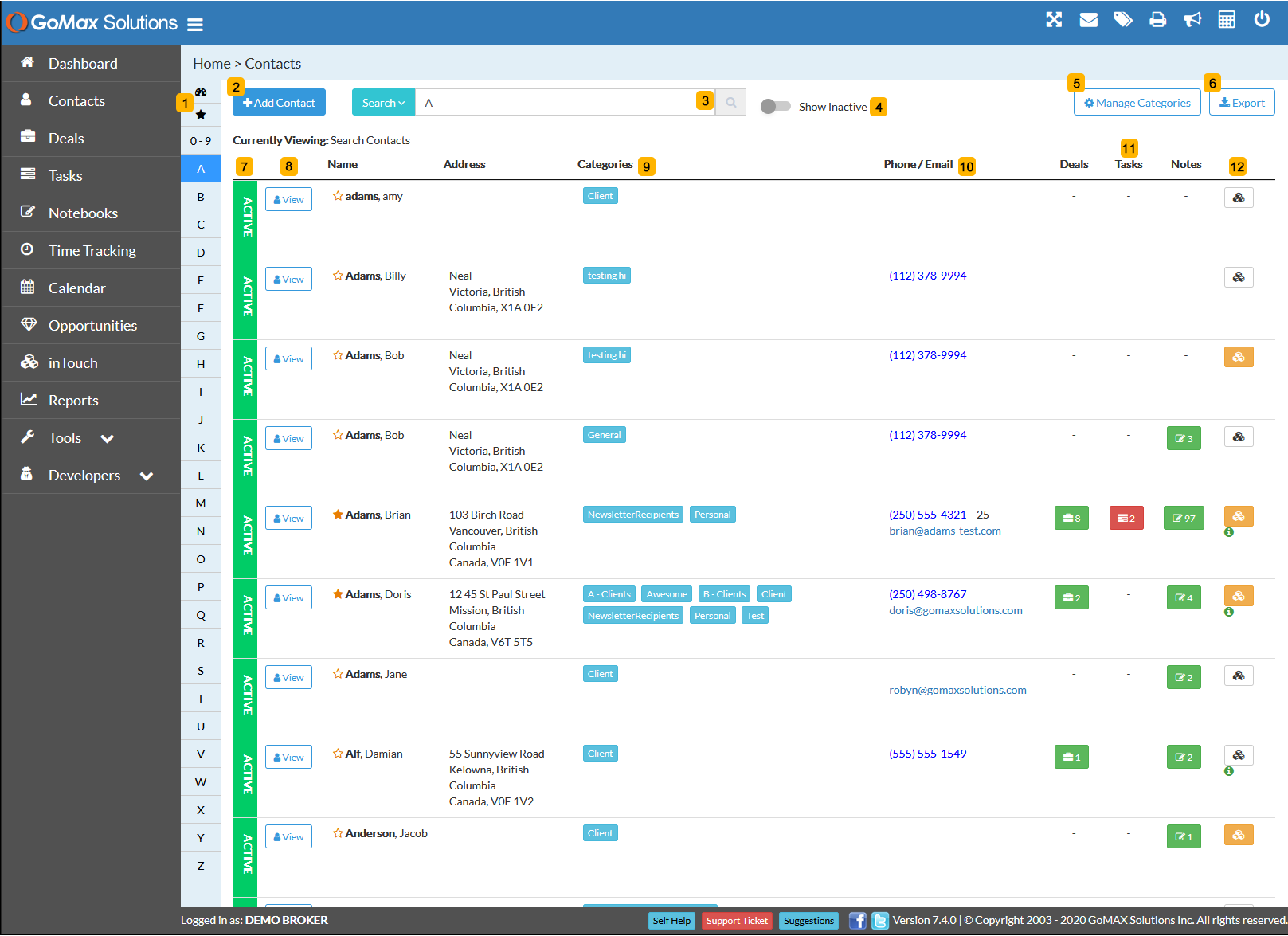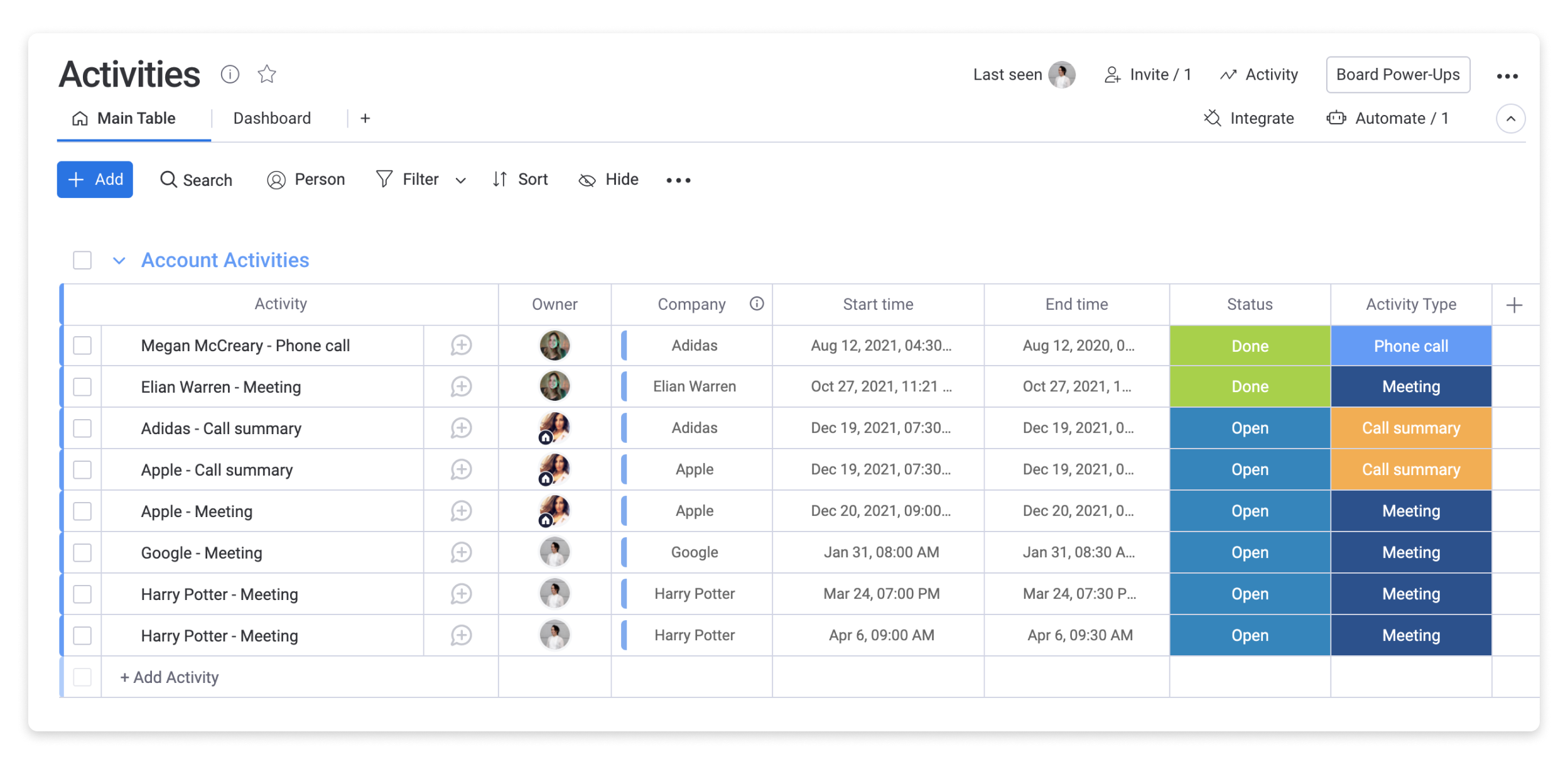CRM for contacts is revolutionizing the way businesses manage their relationships with customers. By providing a centralized platform for contact information, communication tracking, and task management, CRM systems streamline operations and enhance customer satisfaction.
With a CRM specifically designed for contacts, businesses can gain a comprehensive view of their customer interactions, track progress, and identify opportunities for growth.
Introduction

Customer Relationship Management (CRM) is a strategy that helps businesses manage their interactions with customers. It involves managing and tracking customer data, such as their contact information, purchase history, and communication history. A CRM system can help businesses improve their customer service, sales, and marketing efforts.
There are many different types of CRM systems available, but not all of them are designed specifically for managing contacts. A CRM system that is designed for contacts will have features that are specific to the needs of contact management, such as the ability to track contact activity, manage contact relationships, and segment contacts into different groups.
Benefits of using a CRM for contacts
- Improved customer service: A CRM system can help businesses provide better customer service by giving them a complete view of the customer’s history with the company. This information can be used to personalize customer interactions and resolve customer issues quickly and efficiently.
- Increased sales: A CRM system can help businesses increase sales by providing them with tools to track and manage their sales pipeline. This information can be used to identify and qualify leads, and to close deals more quickly.
- Improved marketing: A CRM system can help businesses improve their marketing efforts by providing them with insights into their customers’ behavior. This information can be used to create targeted marketing campaigns and to track the results of those campaigns.
Features of CRM for Contacts
Effective CRM for contacts provides an array of essential features that enhance contact management, communication, and overall efficiency. Here are key features to consider:
Contact Management and Organization
A robust CRM enables seamless contact management and organization. It provides a centralized platform to store and manage all contact information, including names, addresses, phone numbers, email addresses, and social media profiles. Advanced CRMs offer features like contact segmentation, tagging, and customizable fields to categorize and organize contacts based on specific criteria, ensuring easy retrieval and targeted communication.
Communication Tracking and History
CRM systems provide comprehensive communication tracking and history. They record and store all interactions with contacts, including emails, phone calls, meetings, and social media messages. This centralized communication log allows users to easily track the status of conversations, identify communication gaps, and gain insights into contact preferences and engagement patterns.
Task and Activity Management
Effective CRMs facilitate efficient task and activity management. They enable users to assign and track tasks related to specific contacts, set deadlines, and monitor progress. Advanced CRMs offer collaboration tools that allow multiple users to work on tasks simultaneously, ensuring seamless coordination and accountability.
Reporting and Analytics
CRM systems provide robust reporting and analytics capabilities. They generate customizable reports that provide insights into contact engagement, communication patterns, and overall performance. These reports help businesses identify trends, measure campaign effectiveness, and make informed decisions to optimize contact management strategies.
Implementation and Integration

Implementing a CRM for contacts involves meticulous planning, seamless data migration and integration, and comprehensive user training to drive adoption.
To ensure a successful implementation, follow these guidelines:
Planning and Preparation
Before implementing a CRM, define your goals, identify key stakeholders, and establish a clear project plan. Assess your existing contact management processes and data sources to determine the scope of the implementation.
Data Migration and Integration
Migrating data from legacy systems to a new CRM requires careful planning and execution. Map your existing data fields to the CRM’s fields, ensuring data integrity and completeness. Consider using data cleansing tools to remove duplicates and inconsistencies.
User Training and Adoption
User adoption is crucial for CRM success. Provide comprehensive training on the CRM’s functionality, workflows, and best practices. Encourage user feedback and support to ensure a smooth transition and maximize utilization.
Benefits of Using CRM for Contacts
A CRM for contacts provides several tangible benefits that can significantly enhance an organization’s performance and customer interactions. These benefits include:
Improved Customer Service and Satisfaction
By centralizing customer data and interactions, a CRM enables organizations to provide personalized and efficient customer service. With a comprehensive view of customer history, preferences, and touchpoints, customer service representatives can quickly resolve issues, address concerns, and build stronger relationships with customers.
Increased Sales and Revenue
A CRM helps sales teams manage leads, track opportunities, and close deals more effectively. By automating tasks, providing real-time insights into customer behavior, and facilitating collaboration, a CRM streamlines the sales process and increases conversion rates.
Enhanced Collaboration and Productivity
A CRM fosters collaboration among different teams within an organization, including sales, marketing, and customer service. By sharing customer information and insights, teams can align their efforts, avoid duplicate work, and improve overall productivity.
Best Practices for CRM for Contacts

CRM for Contacts offers powerful tools to manage and nurture relationships with your contacts. By following best practices, you can maximize its effectiveness and drive business success.
Maintaining accurate and up-to-date contact information is crucial. Regularly review and update contact details to ensure they are correct and complete. Use features like data enrichment to automatically gather and update information from various sources.
Utilizing Communication Channels and Tracking Interactions
Leverage the CRM’s communication channels to engage with contacts effectively. Utilize email, phone, social media, and other channels to build relationships and track interactions. By logging and tracking communications, you gain a comprehensive view of customer interactions and preferences.
Measuring and Analyzing Performance to Optimize Strategies
Regularly measure and analyze CRM performance to identify areas for improvement. Use metrics such as contact engagement, conversion rates, and customer satisfaction to evaluate effectiveness. Analyze data to understand contact behavior, identify trends, and optimize strategies accordingly.
Case Studies and Examples

Numerous organizations have successfully implemented CRM systems to manage their contacts and enhance their business processes. Here are a few notable case studies:
Salesforce for Nonprofits
Many nonprofits have adopted Salesforce’s CRM platform to streamline their operations and increase their impact. For instance, the American Red Cross uses Salesforce to manage donor relationships, track volunteer activities, and coordinate disaster relief efforts.
Microsoft Dynamics 365 for Small Businesses
Small businesses often find Microsoft Dynamics 365 to be a cost-effective and user-friendly CRM solution. For example, the retail chain Lush Cosmetics uses Dynamics 365 to manage customer data, track sales performance, and provide personalized shopping experiences.
HubSpot for Startups
Startups often choose HubSpot’s CRM platform for its affordability and ease of use. For instance, the online learning platform Coursera uses HubSpot to manage its student database, track marketing campaigns, and provide personalized support.
Future Trends and Innovations
The future of CRM for contacts is bright, with several emerging trends and innovations set to shape the way businesses manage their contact information.
One of the most significant trends is the increasing use of artificial intelligence (AI) and machine learning (ML) for contact management. AI-powered CRM systems can automate many tasks, such as contact segmentation, lead scoring, and email marketing. This can free up sales and marketing teams to focus on more strategic initiatives.
Another trend is the integration of CRM systems with other business applications. This allows businesses to get a complete view of their customers, including their sales history, marketing interactions, and support tickets. This information can be used to provide more personalized and relevant experiences.
Finally, mobile optimization and accessibility are becoming increasingly important. With the growing use of smartphones and tablets, businesses need to ensure that their CRM systems are accessible on all devices. This allows sales and marketing teams to stay connected with their contacts while on the go.
AI and ML for Contact Management
- AI-powered CRM systems can automate many tasks, such as contact segmentation, lead scoring, and email marketing.
- This can free up sales and marketing teams to focus on more strategic initiatives.
- AI can also be used to provide insights into customer behavior, such as their preferences and buying habits.
Integration with Other Business Applications
- CRM systems can be integrated with other business applications, such as ERP, marketing automation, and customer support.
- This allows businesses to get a complete view of their customers, including their sales history, marketing interactions, and support tickets.
- This information can be used to provide more personalized and relevant experiences.
Mobile Optimization and Accessibility
- With the growing use of smartphones and tablets, businesses need to ensure that their CRM systems are accessible on all devices.
- This allows sales and marketing teams to stay connected with their contacts while on the go.
- Mobile-optimized CRM systems can also be used to provide customers with self-service options, such as account management and support.
Last Recap

In conclusion, CRM for contacts is an indispensable tool for businesses looking to improve customer relationships, boost sales, and optimize their operations. By implementing a CRM system, organizations can gain a competitive edge and achieve long-term success.
FAQ Summary
What are the benefits of using a CRM for contacts?
Improved customer service, increased sales, enhanced collaboration, and optimized strategies.
What are the essential features to look for in a CRM for contacts?
Contact management, communication tracking, task management, and reporting.
How can businesses implement a CRM for contacts effectively?
Through planning, data migration, user training, and ongoing optimization.
